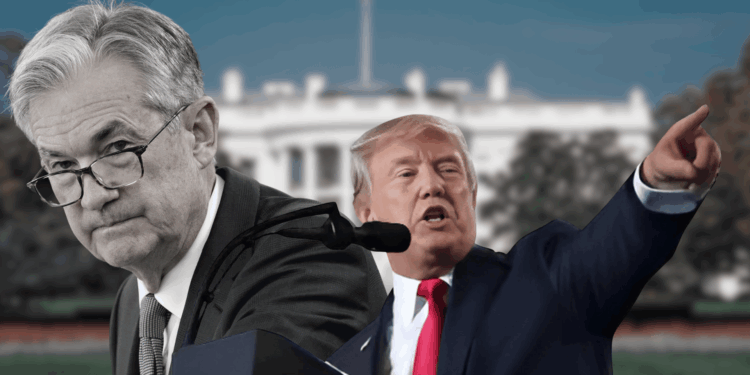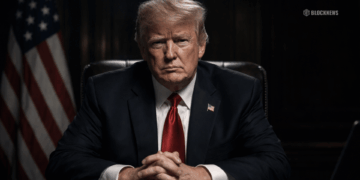- Trump told GOP lawmakers he planned to fire Jerome Powell but publicly denied it shortly after.
- Conflicting signals emerged from within the White House and Congress, fueling speculation.
- Legal precedent and a recent Supreme Court ruling suggest Trump can’t fire Powell without cause.
Just hours after reportedly telling GOP lawmakers he plans to fire Federal Reserve Chair Jerome Powell, President Donald Trump publicly backtracked, telling reporters, “We’re not planning on doing it… It’s highly unlikely.” The conflicting signals followed a closed-door meeting where Trump floated the idea, reportedly garnering strong support from Republican allies.
During the gathering, Trump even showed lawmakers a draft termination letter, according to The New York Times. A senior White House official, speaking anonymously, confirmed the President’s remarks, stating, “The President asked lawmakers how they felt about firing the Fed Chair… he likely will soon.” The Fed has declined comment, but speculation intensified following the meeting, especially after Republicans blocked a key crypto vote that Trump strongly supports.
Conflicting Voices in Washington Heighten Uncertainty
Despite the internal buzz, administration officials and lawmakers offered contradictory takes. Treasury Secretary Scott Bessent told Bloomberg he didn’t expect Trump to act, and Rep. French Hill (R-Ark.), chair of the House Financial Services Committee, said bluntly, “I don’t see Trump firing Powell.” Yet Rep. Anna Paulina Luna stoked speculation further, posting on X: “Hearing Jerome Powell is getting fired! From a very serious source… I’m 99% sure firing is imminent.”
Legally, it would be a steep climb. Powell has previously stated that presidents cannot remove Fed officials without cause, a view reinforced by a recent Supreme Court ruling. No president has ever fired a Fed chair, although several have publicly clashed with them.
Trump’s Longstanding Friction with Powell Comes to a Head
Trump first nominated Powell in 2018 to succeed Janet Yellen, now Treasury Secretary. Since then, the relationship has soured, with Trump regularly accusing Powell of being politically biased. Most recently, Trump claimed the Fed’s 2024 rate cuts were aimed at helping Democratic nominee Kamala Harris and called for up to 3 percentage points in additional rate reductions—far more aggressive than Powell’s current pace.
He’s also criticized ongoing renovations at the Fed’s D.C. headquarters, hinting they could be grounds for dismissal. Trump allies argue that if a “cause” is needed, cost overruns and delays could provide political cover. Still, legal experts suggest any attempt to remove Powell would likely trigger a constitutional showdown.














